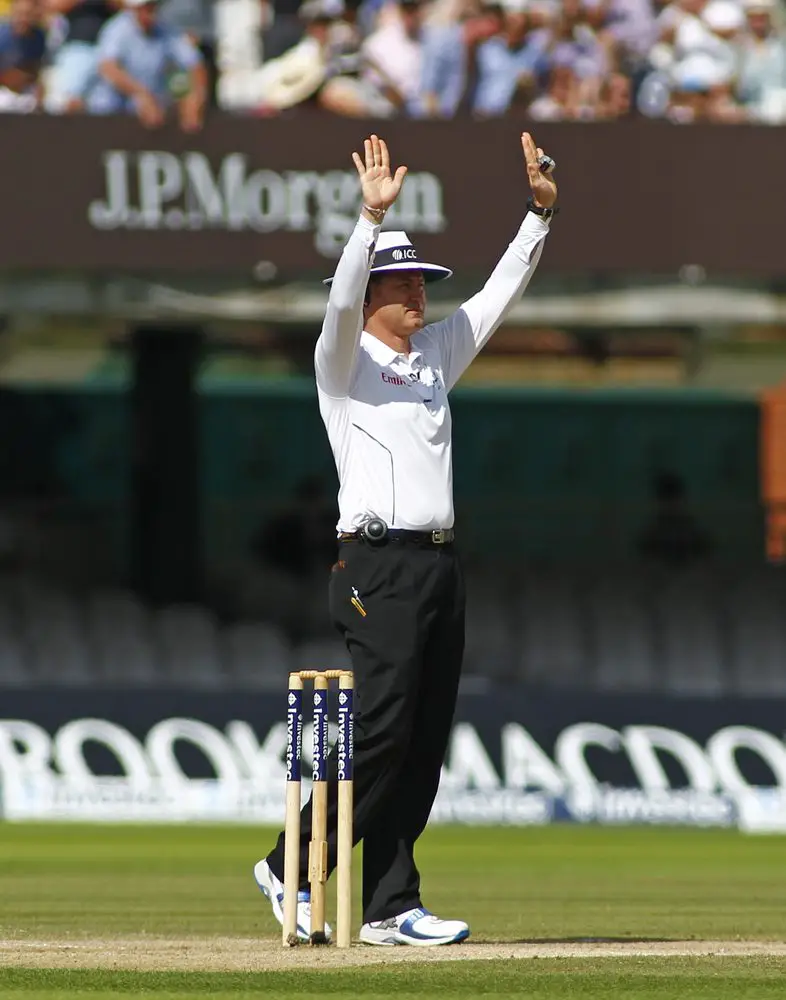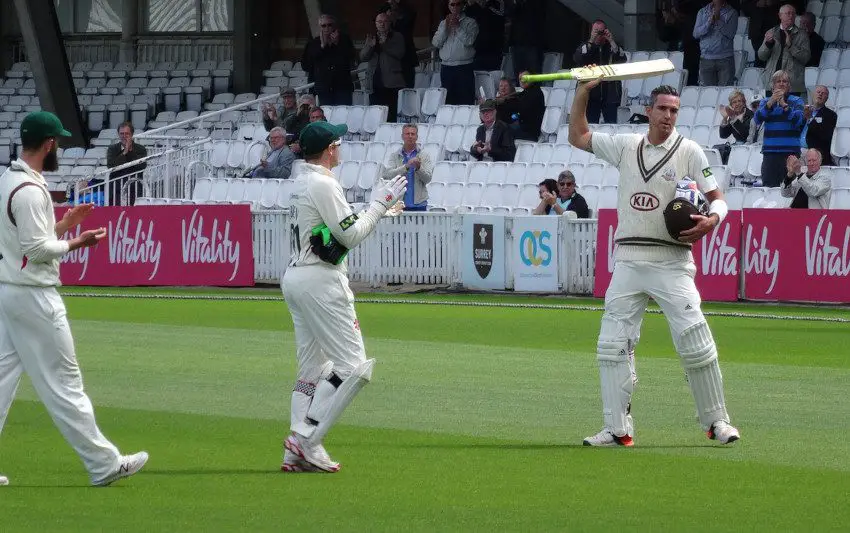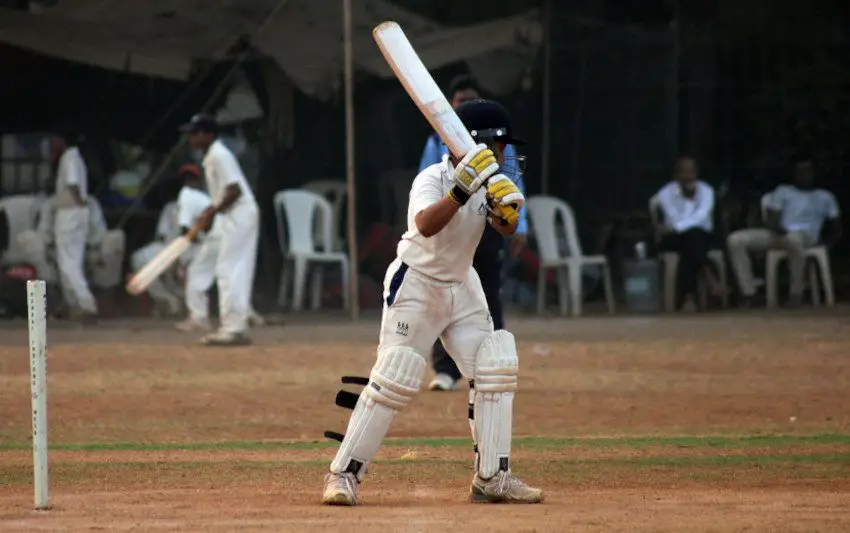Table of Contents
If you want to become a cricket umpire please read on. The question gets asked a lot in India and the answers are specific to that country, but the process is similar around the world.
How to Become an Umpire in India?
Step 1 – Seek Information from Your State Cricket Association
The first step in the process is to contact your State Cricket Association. This is like a mini governing body within the overall umbrella of the BCCI. There are a lot of state bodies which cover the game in the country – 37 in total.
There are too many to list here, but it will be easy to track them down via an internet search, based on your location.
Step 2 – Pass the Umpire Certification Exam
Each of those State Cricket Associations will have an initial exam. These will differ slightly, depending on which state you are in, but each of them will tend to follow a similar pattern.
Students can usually expect to experience three days of training before an exam takes place on the fourth and final day.
The exam will typically come in three sections. The first is a written, question and answer stage. Once this round has been passed, prospective umpires will then take part in oral examinations and some practice situations.
Step 3 – Participate in Matches Governed by your State Cricket Association
Classroom knowledge is great but there is no substitute for getting out onto the field of play and umpiring in a match situation. Having passed that initial exam, it will be possible to get involved with games which are run by the state associations.
While officiating as a standing umpire in these games, individual performances will be assessed. If standards fall, it may be necessary to take a refresher course.
If umpires score consistently well in those matches, they will usually have to wait for around two to three years before taking the next step.
Step 4 – Pass the BCCI Level 1 Exam
The next level of courses are run by the BCCI and it all begins with a first exam. This starts with an internal screening process and, while it’s unclear as to what the board are looking for exactly, it’s likely to relate to previous performances.
Umpires need to be shortlisted for the programme. Those that make the shortlist go through a similar process to that at state level but they must pass the theory test that follows. Within a year, there will be a refresher theory test and officials must also pass that before they can progress to the next phase.
Step 5 – Pass the BCCI Level 2 Exam
Next up is the BCCI Level 2 Exam. This comes in three parts:
- Theory
- Practical
- Oral
There are similarities between other examinations but this will be tougher. Upon successful completion of this, officials can get onto the BCCI recognised panel of umpires.
What is the BCCI?
The initials BCCI stand for the Board of Cricket Control in India. This is the overall governing body that runs and regulates the game.
If, after umpiring in state run games, officials want to take their careers further, they must be sanctioned by the BCCI.
BCCI National Academy for Umpires
These are the qualities that an official will need to show at the national academy. The academy provides the training and the exams that lead to the official qualifications that are necessary in terms of making the elite panels.

Qualification Requirements
Education
There are no minimum educational requirements and this should not be a barrier to an umpiring career.
Beyond the basic ability to read and write, it’s important that umpires can communicate in English. If they want to progress and stand in international matches, this is the language that is most commonly used around the world.
Physical Fitness
Umpires will need to display a good level of physical fitness if they want to progress through the ranks. While they will not have to sprint in like a fast bowler or run quickly between the wickets, this is an important area that shouldn’t be neglected.
Remember that the two umpires are the only people likely to be out on the field for the entire duration of the game. That’s a draining experience in itself. Standing around with just the option to walk from square leg to the wicket can be tiring. High levels of stamina are needed and that’s why umpires must have that degree of physical fitness.
Pass the Exams
As a final part of the process, students must pass those exams. This is the final stage and only a pass mark will provide access to those official umpiring panels.
Qualification Skills
Make Sound Decisions
It goes without saying that umpires should be making sound decisions. If they are getting decisions wrong on a consistent basis, their ability to officiate will be called into question. This is why umpires are constantly being assessed at all levels.
Study the laws and make sure you are fully conversant with them. If any changes to those laws come in, be sure that you understand the updates.
One final point: It’s important to have good hearing if you want to become an umpire. One of the more difficult decisions to make involves caught behinds. Remember that there is no DRS in most cricket matches and it’s not always possible to see a deflection.
Sharp hearing can let you know whether a batter has edged the ball or not.
Multitasking Skills
Being an umpire isn’t just about making decisions as to whether a batter is out or not out. They need to count the balls in an over, making adjustments for any no balls or wides, and they need to know when to call Powerplays and other defining points in the game.
They will also need to make sure that the ball remains in a fit condition for play, carrying out any running repairs such as snipping off a loose seam. There are many facets to the job and that’s why all umpires need those multitasking skills.
Interpersonal Skills
It’s important to keep the game flowing and to build up a good relationship with the players. You are not their friend but you are not a schoolmaster either, so don’t treat them like children.
A calm approach and a respect for the players should be shown. Conversations out in the middle can be respectful but those players should always know who is in charge.
Respect is a two-way street and those strong interpersonal skills can help umpires get the players on their side.
Conclusion
Becoming an umpire is a long process and it will need dedication. Here in the UK, I have personally undertaken two initial stages and I still have a long way to go before I can officiate beyond club level.
I can also confirm that the process listed above for India is similar in other parts of the world. It takes some time, but you can still umpire at lower levels as you go through the process, and it’s ultimately very rewarding for those who want to stay in the game.


